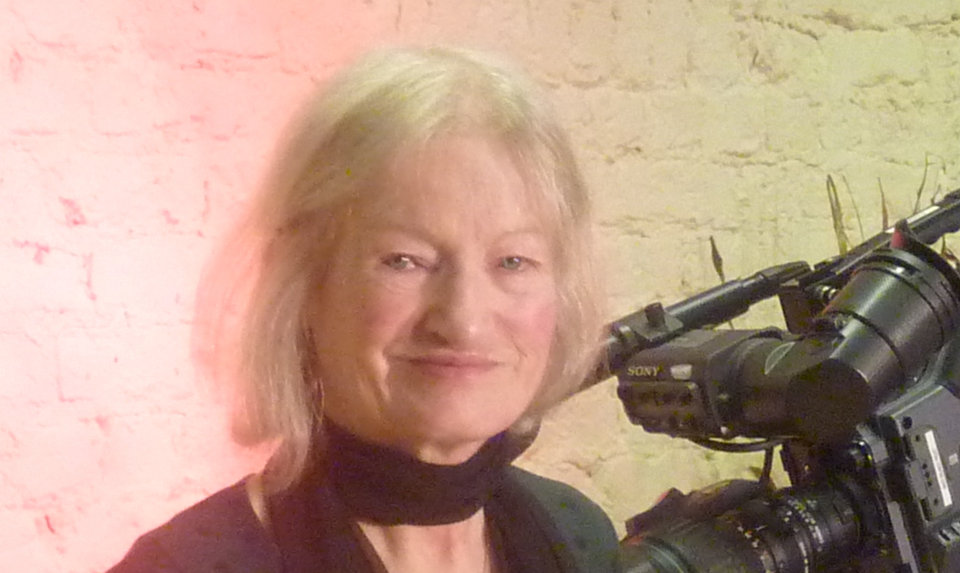Eileen has worked extensively in Northern Ireland politics, community work and peace activism. “I was brought up to believe that everybody was the same, that there were no differences…”
Born in Dromara at the end of the WW2, Eileen’s mother died when she was a child, her father worked for the Irish News. “They would be my early influences, the loss of my mother which really lasted right into my teens I really felt dreadful about it as we all did, but it also made us a very close family and we still are a close family.”
She had a liberal outlook on life at a young age. “I remember having definite thoughts about, if we could just recognise each other and respect each other it would be a much easier way to live, because it must be awful to go around saying, oh I can’t talk to them because I’m a Catholic, I can’t talk to them because I’m Protestant, and that was me even before I went near politics that was my feeling and in fact in the end that’s why I decided to join a party and I joined the Alliance Party, you know we were hit because my husband and I were Catholic and Protestant, it never bothered us, we had talked it through.”.
Eileen was asked to help out with a cross community project on the Stewartstown Road working with residents in the Lenadoon, and Suffolk estates,“the women were totally dominated by their men on both sides, so there were actually a lot of common themes”.
Eileen and her husband became members of the Suffolk Residents Association and moved into the area. “We tried to get people to come together.” She started up a youth club and made attempts to bridge the gap between the two communities. “I had thought I would appeal more to the mothers because I could get on with them, it was a UDA estate, and we worked very closly with them” , but due to intimidation Eileen and her husband were forced to leave their home.
“That’s when I started to think politicians didn’t help in anyway, if you went to them they just said “oh yes” and that was that, and they really didn’t want to know about what I would call community politics.”
Eileen and her husband moved to Bangor in 1985. “That’s the time when we started to become political, my husband had already joined the Alliance Party and then I joined it.” She went on to become General Secretary of the Alliance Party.
Eileen became involved with the Peace People a peace organisation founded in 1976 as a grassroots movement to protest the ongoing violence in Northern Ireland. She worked as Welfare Worker with prisoner’s families and people who suffered intimidation. “One of the jobs I had with the Peace People was taking a bus up to the prisons which were overflowing at that time with people, I not only organised the trips up, I organised a lot of welfare… setup and worked with them, it was quite successful.”
Eileen also helped with the Peace Train: “They asked me to do that because there were a lot of problems at that time with taxi drivers and the train from Belfast to Dublin, practically on a daily basis ,was being bombed at some point on the journey.”
She acted as Co-ordinator organising Peace Trains between Belfast-Dublin, Belfast-Derry, Belfast-Glasgow and Belfast-London.
Eileen remembers her involvement with the Good Friday Agreement. “The Good Friday Agreement was a turning point in a number of ways, unfortunately it wasn’t used to its best advantage in later years, I’m still concerned about part of the jigsaw, very concerned about it, the situation with victims, all victims because I worked with victims. They still haven’t been properly looked at.”
Eileen is also the Chair of Women Into Politics. “From my experience during the bad days in communities of all descriptions, if the women hadn’t have been active as they were, there would have been a lot more deaths. They were there to look after their community. We wanted women to use the talents that they had developed and come into the political arena, so that’s why I chose Women Into Politics, because I already knew the work that they’d done.”
Eileen continued her work with the Alliance Party, having various responsibilities, including Deputy Leader and Speaker to the Transitional Assembly in April 2006. “I made it clear to Peter Hain that I would not become a Speaker if he stopped me bringing people together, and he said ‘no, no, that’s the whole point’. So it just gives you an idea that all the work I’ve done in my life, has been done with trying to show people that they actually can respect each other in a mutually beneficial way.”
Despite retiring from political life on Devolution Day in May 2007, Eileen continues to work extensively with many groups and causes, including Autism Northern Ireland.
On her work with Autism Northern Ireland of which she is a Vice President: “It’s simply just to help people who have tried to help themselves but have found it absolutely impossible.”
On the future of Northern Ireland: “I think people should realise by now that violence is not the way. All the feelings that if your culture is being undermined that that’s something you need to fight for, but you don’t need to fight you just need to talk. My dream is if the community… the voluntary, the civic society and the political society… all work together for the one aim that would be absolutely fantastic. I think people must realise that’s the only way to go.”




